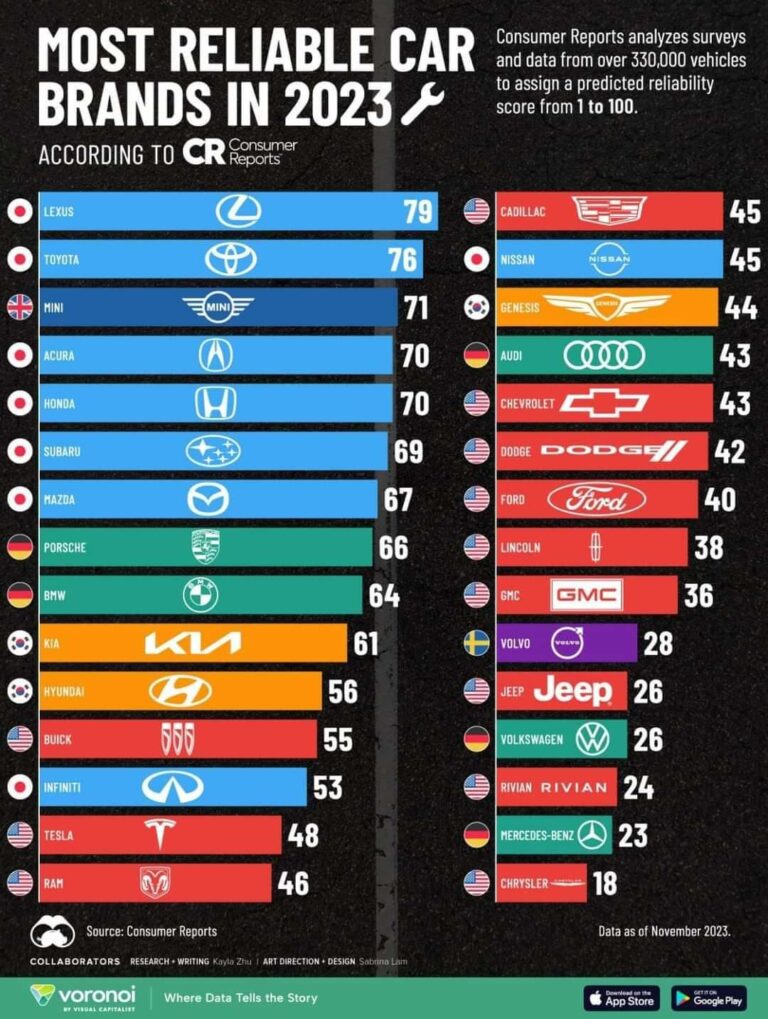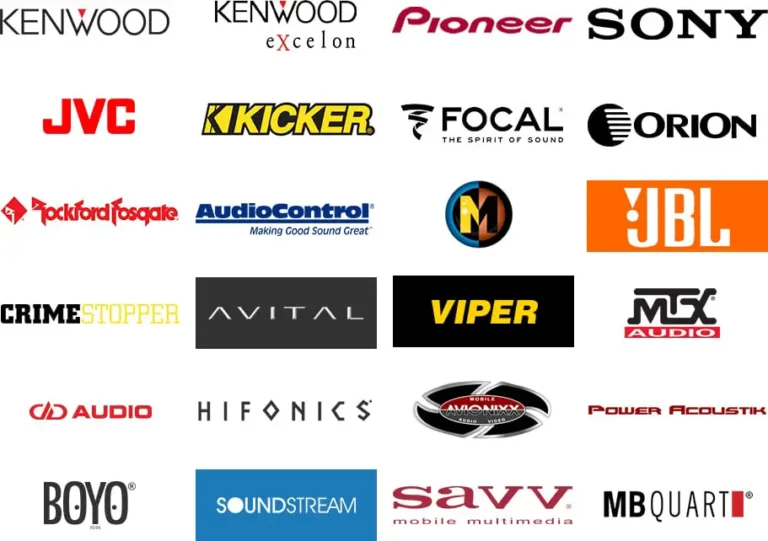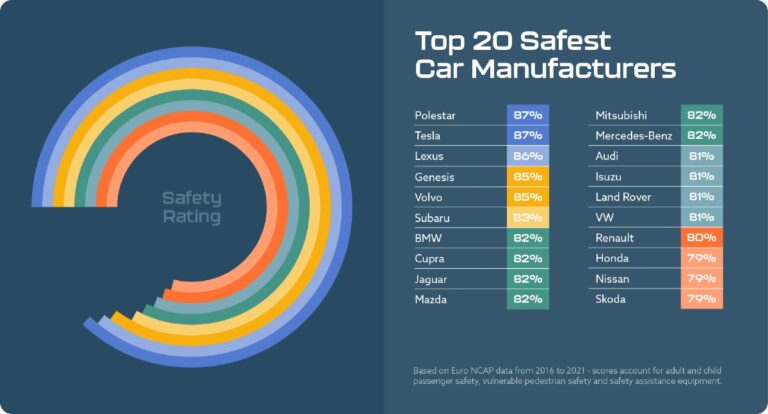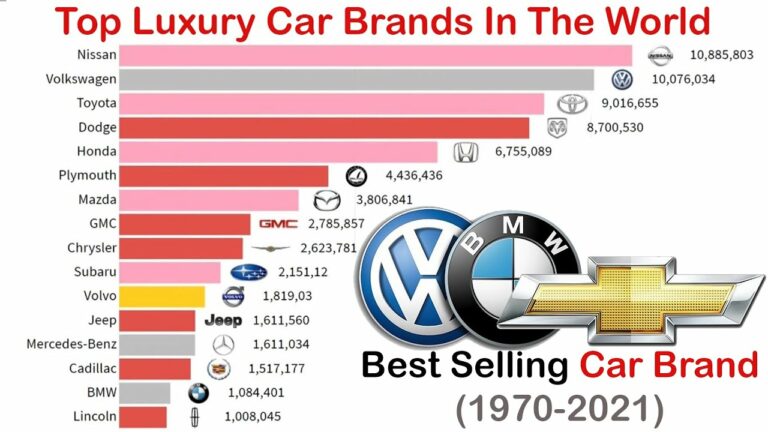Small Car Brands: The Unsung Heroes of Automotive Innovation and Exclusivity
Small Car Brands: The Unsung Heroes of Automotive Innovation and Exclusivity cars.truckstrend.com
In a world dominated by multinational automotive giants, producing millions of vehicles annually and catering to every conceivable market segment, there exists a vibrant, albeit smaller, universe of "Small Car Brands." These aren’t necessarily brands that only make small cars, but rather automotive manufacturers characterized by their smaller scale of operation, often producing limited numbers of highly specialized, bespoke, or niche vehicles. They are the independent artisans, the passionate engineers, and the visionary designers who defy mass-market conventions, offering an alternative that prioritizes craftsmanship, exclusivity, innovation, and a deeply personal connection between creator and owner.
The importance and relevance of small car brands extend far beyond their sales figures. They are crucibles of innovation, often pioneering technologies or design philosophies that larger companies eventually adopt. They cater to discerning enthusiasts who seek something truly unique, a vehicle that reflects their individuality and passion rather than simply serving as a mode of transport. For many, owning a car from a small brand is not just about the machine itself, but about being part of a select community, a testament to appreciating automotive art and engineering at its most focused.
Small Car Brands: The Unsung Heroes of Automotive Innovation and Exclusivity
The Allure of the Niche: Why Small Car Brands Exist and Thrive
Small car brands thrive precisely because they don’t aim for mass appeal. Their existence is predicated on fulfilling specific, often underserved, market demands that the larger players overlook or deem unprofitable. This strategic focus allows them to concentrate resources on what they do best, whether it’s extreme performance, unparalleled luxury, groundbreaking electric vehicle technology, or a meticulous recreation of classic automotive heritage.
Key characteristics that define their allure:
- Exclusivity and Rarity: Limited production numbers mean these vehicles are seldom seen, making them highly desirable for collectors and those seeking uniqueness.
- Uncompromised Vision: Without the bureaucratic layers and shareholder pressures of large corporations, small brands can pursue audacious design concepts and engineering solutions.
- Craftsmanship and Attention to Detail: Many small brands emphasize hand-built quality, bespoke materials, and meticulous finishing, offering a level of artistry rarely found in mass-produced vehicles.
- Direct Customer Relationships: Owners often have direct access to the designers, engineers, or even the founders of the company, fostering a highly personalized buying and ownership experience.
- Agility and Innovation: Their smaller size allows them to adapt quickly to new technologies, market trends, or customer feedback, often bringing innovative solutions to market faster than their larger counterparts.
- Specialized Performance: From hypercars pushing the boundaries of speed to highly capable off-roaders built for extreme environments, small brands often excel in specialized performance categories.


Types and Categories of Small Car Brands
The landscape of small car brands is incredibly diverse, encompassing a wide range of philosophies, products, and price points. While not exhaustive, here are some prominent categories:
- Boutique Hypercar/Supercar Manufacturers: These brands operate at the very pinnacle of automotive performance and luxury, producing extremely limited runs of vehicles with astronomical price tags. They focus on bleeding-edge technology, exotic materials, and breathtaking design.
- Examples: Koenigsegg (Sweden), Pagani (Italy), Rimac Automobili (Croatia).
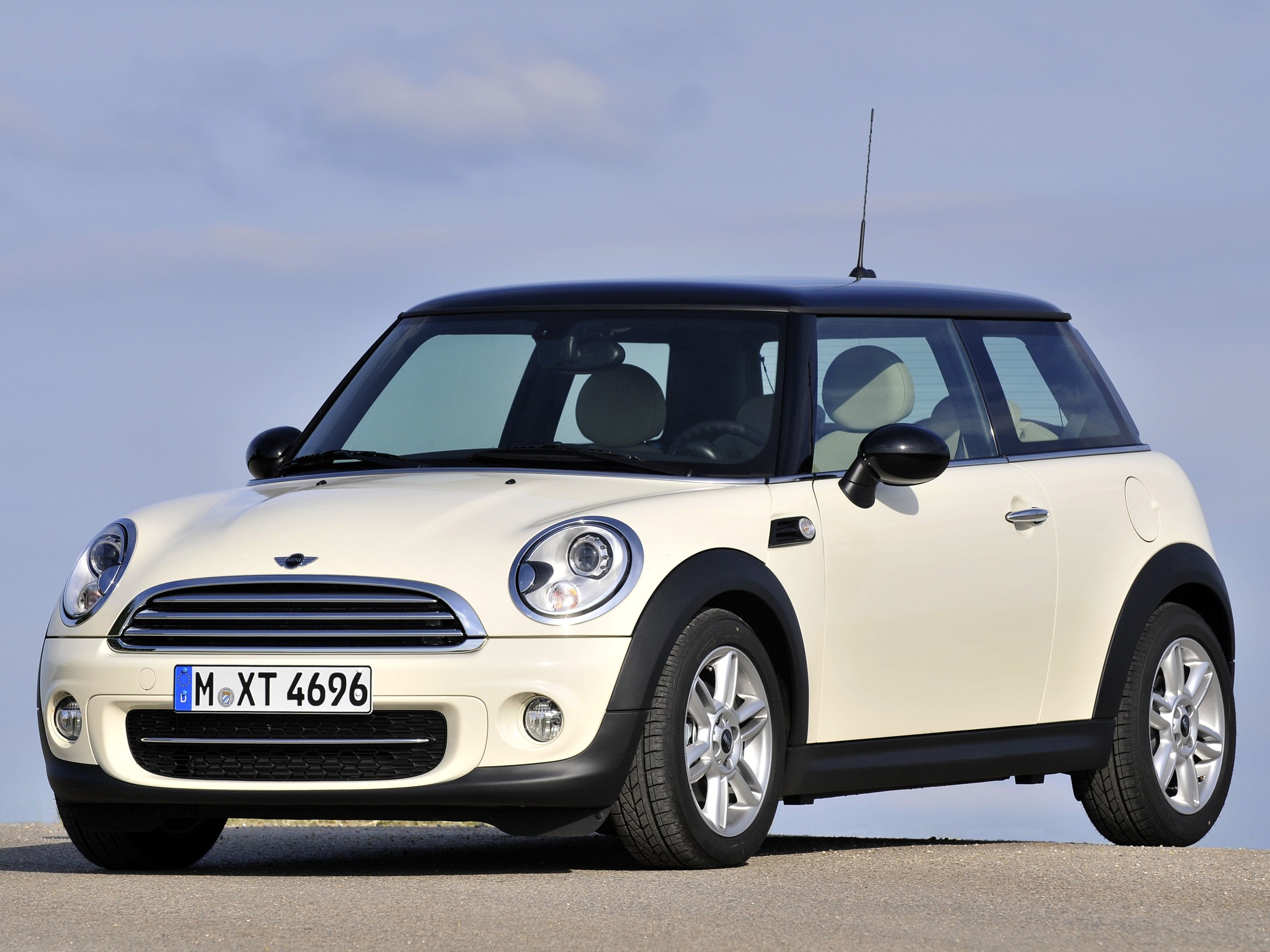
- Specialty Performance/Track-Focused Brands: Often producing lightweight, minimalist vehicles designed for ultimate driving engagement, whether on the road or track.
- Examples: Ariel (UK), Caterham Cars (UK), Donkervoort (Netherlands).
- Luxury/Bespoke Coachbuilders: These brands offer unparalleled customization, often building vehicles to individual client specifications, either from scratch or by heavily modifying existing platforms.
- Examples: Morgan Motor Company (UK – combines classic styling with modern engineering), Singer Vehicle Design (USA – highly modified Porsche 911s).
- Emerging Electric Vehicle (EV) Startups: With the shift to electric powertrains, the barrier to entry for new automotive manufacturers has somewhat lowered, leading to a surge in EV startups focusing on unique designs, advanced technology, or specific market niches.
- Examples: Lucid Motors (USA), Rivian (USA), Polestar (Sweden – though growing, started as a performance sub-brand).
- Re-invented Classics/Restomod Specialists: These companies take iconic classic cars and meticulously restore, enhance, and often re-engineer them with modern components and performance, creating unique blends of heritage and contemporary capability.
- Examples: Alfaholics (UK – classic Alfa Romeos), Eagle (UK – E-Type Jaguars).
- Utility/Off-Road Specialists: Focusing on rugged, highly capable vehicles designed for extreme environments or specific professional uses.
- Examples: Ineos Grenadier (UK – spiritual successor to the original Land Rover Defender).
Benefits of Choosing a Small Car Brand
Opting for a vehicle from a small car brand offers a distinct set of advantages that are hard to find in the mainstream market:
- Unmatched Exclusivity: You’re highly unlikely to see another one on your daily commute. This rarity contributes to a strong sense of ownership pride.
- Personalized Experience: Many small brands offer extensive customization options, allowing you to truly tailor the vehicle to your taste and needs. The buying process often involves direct interaction with the brand’s representatives, leading to a more intimate and memorable experience.
- Superior Craftsmanship: With lower production volumes, there’s a greater emphasis on meticulous hand-assembly, quality control, and the use of premium materials.
- Driving Purity and Engagement: Many small brands prioritize driving dynamics, offering a raw, unfiltered, and deeply engaging driving experience often lost in larger, more comfort-oriented vehicles.
- Potential for Appreciation: While not guaranteed, some rare and highly desirable models from small brands can appreciate significantly in value over time, becoming collector’s items.
- Supporting Innovation: By choosing a small brand, you’re often supporting pioneering efforts in design, engineering, and sustainable practices that might eventually influence the wider industry.
- Community and Connection: Owners of vehicles from small brands often form tight-knit communities, sharing experiences, knowledge, and passions.
Challenges and Considerations When Buying from Small Car Brands
While the allure is strong, potential buyers must be aware of the unique challenges associated with owning a vehicle from a small car brand:
- Higher Price Tag: Due to low-volume production, bespoke components, and intensive labor, vehicles from small brands almost invariably command a premium price.
- Limited Dealership and Service Network: Unlike mainstream brands with extensive global networks, small brands often have very few, if any, dedicated service centers. This can necessitate traveling long distances for maintenance or relying on specialized independent mechanics.
- Parts Availability and Cost: Proprietary or custom-made parts can be scarce, leading to long wait times and significantly higher costs for repairs or replacements.
- Resale Market Volatility: While some models appreciate, others can be difficult to sell due to their niche appeal and limited market awareness. Liquidity can be an issue.
- Company Longevity and Support: Especially with newer startups, there’s an inherent risk regarding the long-term viability of the company. If a brand ceases operations, obtaining parts or support can become extremely difficult.
- Insurance Challenges: Insuring a rare or high-value vehicle from a lesser-known brand can be more expensive or require specialized insurers.
- Regulatory Compliance: Small brands face the same stringent safety and emissions regulations as large manufacturers, which can be a significant cost burden and influence their global availability.
- Practicality Compromises: Many niche vehicles prioritize performance or design over everyday practicality, comfort, or cargo space.
How to Research and Acquire a Small Car Brand Vehicle
Acquiring a vehicle from a small car brand requires a more diligent and personalized approach than walking into a typical dealership.
- Define Your Priorities: Understand what you value most – extreme performance, unique design, classic appeal, electric innovation, or exclusivity. This will narrow your search.
- Thorough Research is Paramount:
- Independent Reviews: Seek out reviews from reputable automotive journalists and publications that specialize in high-performance or niche vehicles.
- Owner Forums and Communities: Engage with current owners online. Their firsthand experiences with ownership, service, and reliability are invaluable.
- Company Background: For newer brands, investigate their funding, leadership team, and production plans. Look for transparency.
- Visit in Person: If possible, visit the manufacturer’s facility or showroom. Seeing the craftsmanship firsthand and speaking with staff can provide immense insight.
- Understand the Acquisition Process: Many small brands operate on a pre-order or bespoke build basis, involving deposits, long waiting lists, and detailed configuration sessions.
- Scrutinize After-Sales Support: Clarify warranty terms, service intervals, recommended service centers, and parts supply chains before committing. Ask about roadside assistance for niche vehicles.
- Financial Due Diligence: Be prepared for higher overall ownership costs beyond the purchase price, including specialized insurance, maintenance, and potential transport for service.
- Professional Inspection (for pre-owned): If considering a used vehicle from a small brand, a pre-purchase inspection by a specialist mechanic familiar with the brand is absolutely crucial.
- Legal and Import Considerations: If buying from a foreign brand, understand import duties, local registration requirements, and any specific homologation needs.
The Future of Small Car Brands
The future looks promising for agile, innovative small car brands, particularly with the industry’s pivot towards electrification. Electric powertrains simplify mechanical complexity, potentially lowering the barrier to entry for new manufacturers focusing on chassis design, battery integration, and software. This allows small brands to compete more directly on design, user experience, and unique performance characteristics rather than solely on engine development.
Expect to see:
- Continued EV Innovation: Small EV startups will push boundaries in battery technology, charging speeds, and sustainable manufacturing.
- Increased Personalization: As mass production becomes more standardized, small brands will double down on offering unparalleled levels of customization and bespoke services.
- Focus on Experiential Ownership: The emphasis will shift further from mere transportation to a holistic ownership experience that includes exclusive events, direct access to the brand, and community building.
- Sustainable Materials and Practices: Many small brands are already leading the way in using recycled materials, ethical sourcing, and carbon-neutral production methods.
Practical Advice and Actionable Insights
- Passion Over Practicality: Understand that owning a car from a small brand is often a passion project. Be prepared for a unique, sometimes challenging, but ultimately rewarding ownership experience that prioritizes emotion over everyday convenience.
- Budget Beyond the Sticker Price: Factor in specialist insurance, higher maintenance costs, potential transport fees for servicing, and the cost of bespoke parts.
- Join the Community: Engaging with other owners is one of the best ways to gain insights, find solutions to potential issues, and truly enjoy the unique camaraderie that comes with owning a niche vehicle.
- Verify Claims: Be wary of grand claims from new startups without tangible proof of production or existing vehicles. Due diligence is key.
- Understand Your Risk Tolerance: If you’re adverse to potential long lead times for parts or a less straightforward service experience, a small brand might not be for you.
Table: Illustrative Examples of Small Car Brands and Their Offerings
Please note: Prices are highly variable, depend on configuration, market, and year, and are provided as general estimates for new vehicles. This table is for illustrative purposes only and not a definitive price list.
| Brand Name | Country of Origin | Primary Focus / Niche | Typical Vehicle Type | Estimated New Vehicle Price Range (USD) | Key Differentiating Factor |
|---|---|---|---|---|---|
| Koenigsegg | Sweden | Extreme Hypercars, Record-Breaking Performance | Hypercars (e.g., Jesko, Gemera, Regera) | $2,000,000 – $4,000,000+ | Unparalleled speed, innovation, bespoke engineering. |
| Pagani | Italy | Art-Inspired Hypercars, Exquisite Craftsmanship | Hypercars (e.g., Huayra, Utopia, Zonda) | $2,500,000 – $5,000,000+ | Artistic design, bespoke carbon fiber, obsessive detail. |
| Rimac Automobili | Croatia | Electric Hypercars, EV Powertrain Technology | Electric Hypercars (e.g., Nevera) | $2,200,000 – $2,500,000 | Cutting-edge EV technology, blistering electric performance. |
| Ariel | UK | Ultra-Lightweight, Track-Focused Performance Cars | Road-legal track cars (e.g., Atom, Nomad) | $75,000 – $150,000 | Raw, minimalist design, unparalleled power-to-weight ratio. |
| Caterham Cars | UK | Classic British Lightweight Sports Cars (Seven) | Lightweight sports cars (e.g., Seven 170, 485) | $40,000 – $80,000 | Pure driving experience, modularity, heritage design. |
| Morgan Motor Co. | UK | Hand-built Classic Sports Cars with Modern Tech | Roadsters, 3-wheelers (e.g., Plus Four, Super 3) | $70,000 – $150,000 | Timeless design, traditional craftsmanship, wood frame. |
| Lucid Motors | USA | Luxury Electric Sedans, Range & Efficiency Focused | Luxury Electric Sedans (e.g., Air) | $70,000 – $180,000 | Class-leading range, innovative battery tech, spacious interior. |
| Rivian | USA | Electric Adventure Vehicles (Trucks & SUVs) | Electric Pickup Trucks, SUVs (e.g., R1T, R1S) | $75,000 – $100,000 | Off-road capability, integrated adventure features, design. |
| Ineos Grenadier | UK | Rugged, Purpose-Built Off-Road Utility Vehicle | SUV (e.g., Grenadier) | $70,000 – $85,000 | Uncompromising off-road capability, utilitarian design. |
| Singer Vehicle Design | USA | Restored & Reimagined Porsche 911s (964-based) | Bespoke Restomod Porsche 911s | $750,000 – $2,000,000+ | Obsessive attention to detail, bespoke engineering, artistry. |
Frequently Asked Questions (FAQ)
Q1: What exactly defines a "small car brand"?
A1: A "small car brand" refers to an automotive manufacturer that operates on a smaller scale than mainstream giants. They typically produce limited numbers of highly specialized, niche, or bespoke vehicles, focusing on unique design, performance, or craftsmanship rather than mass-market appeal.
Q2: Are cars from small car brands reliable?
A2: Reliability varies greatly. Established small brands with a long history of production (like Morgan or Caterham) often have proven designs and robust components. Newer startups might face initial teething issues common to any new product. Researching specific models and reading owner reviews is crucial. Many prioritize performance or unique features over ultimate long-term durability in the same way a mass-produced car might.
Q3: Are cars from small car brands more expensive to insure?
A3: Generally, yes. Their higher purchase price, limited production, bespoke parts, and often high-performance nature make them more expensive to insure. You may need to seek out specialist insurance providers who understand the unique value and risks associated with these vehicles.
Q4: Where can I service a car from a small car brand?
A4: This is a key challenge. Most small brands have a very limited (or no) dedicated dealership network. Service might involve shipping the car back to the factory, visiting one of a few specialized service partners, or finding an independent mechanic with expertise in that specific brand or type of vehicle. Always clarify service arrangements before purchase.
Q5: Do small car brands offer electric vehicles?
A5: Absolutely! The shift to electric powertrains has opened up opportunities for many new small brands and startups. Companies like Rimac, Lucid, and Rivian are prime examples of small brands leading innovation in the EV space, leveraging the flexibility and performance potential of electric drivetrains.
Q6: Are cars from small car brands a good investment?
A6: While some rare and highly desirable models from small brands can appreciate significantly, especially those with limited production runs or a strong collector following, it’s not guaranteed. Most vehicles, even from small brands, will depreciate. Buying a car from a small brand should primarily be driven by passion and enjoyment, not solely as a financial investment.
Conclusion
Small car brands represent the vibrant, passionate, and often avant-garde side of the automotive industry. They are the antithesis of mass production, offering a world of exclusivity, unparalleled craftsmanship, and a deeply personal connection between the vehicle and its owner. While they come with unique challenges related to cost, service, and accessibility, the rewards – a truly unique driving experience, a piece of automotive art, and a connection to a community of like-minded enthusiasts – often far outweigh the hurdles. In a rapidly evolving automotive landscape, these agile and innovative players will continue to push boundaries, reminding us that the spirit of automotive excellence and individuality remains as strong as ever.

